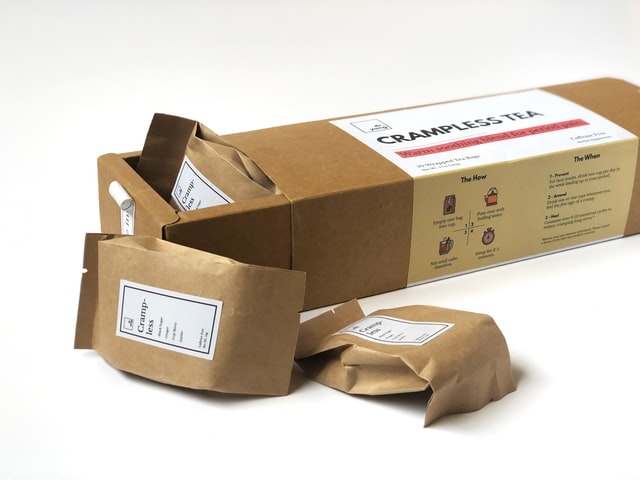Pathmonk Interview
Building Better B2B Brands for Revenue Growth:
In an interview on the podcast “Pathmonk Presents”, our Co-Founder and Director of Client Engagement Christian Klepp elaborates on building a brand for awareness, strategic positioning, and growth.

[Thanks to Helen Shi from Unsplash for the photo.]
There are many quotes related to the topic of standing out and building a strong brand, but the one by the famous American author and motivational speaker Zig Ziglar is one of my favorites.
He said: “If people like you they will listen to you, but if they trust you, they’ll do business with you.”
As simple as that may sound, it’s interesting to see how often this tends to get overlooked in the B2B world, where many companies are tempted to talk about how great they are, how many accolades they’ve received, how amazing their product features and proprietary technology is, and how they’re spread across different markets and geographies.
While I’m not saying that those attributes are unimportant, it gradually becomes challenging when you find everyone in the space using that same approach. It’s almost like they all drew inspiration from the same playbook.
When it comes to the different industries across the B2B spectrum, several challenges that companies are confronted with come to mind:
- Marketing or selling a relatively complex product or solution to increasingly well-informed and cautious customers
- Long sales cycles with multiple potential “push back areas”
- Multiple stakeholders with differing roles that are responsible for purchasing
- Different selection criteria from the stakeholders that will determine whether they will choose you or not
- Several touchpoints along a buyers’ journey that is anything but linear
- A marketplace inundated with companies using the same messaging, positioning, and overall “me too” approach
- Trying to generate leads via digital platforms (where many were used to doing this in person)
Another interesting point to note is that the modern B2B buyer likes to conduct their own independent research before they even reach out to a service provider.
The numbers vary, but according to some research conducted by FocusVision, the average B2B buyer will read or search between 6 to 13 pieces of content related to the respective service provider to help make a decision.
With the above-mentioned challenges in mind, it begs the following questions:
- How can your B2B company stand out in a crowded marketplace, and be the signal against the noise?
- How can you position your company as an industry expert to help build trust and credibility?
- How can you convince your potential customers that you are the right partner?
- You clearly need a good product or solution with the relevant features and technology, but what would make you stand out beyond this?
The answer lies in branding. You might ask “why?”
Simply put, the objective of the exercise is to:
- Find ways for your potential customer to get to know you
- Find ways for your potential customer to choose you

[Thanks to Timon Studler from Unsplash for the photo.]
Branding helps you to achieve that by enabling you to define what it is you want your organization to be known for in the market. It will help you to stay “top of mind” with your ideal customer not just because of the products, services, or technology you have, but also because of the experience you provide as well as the trust and credibility that you deliver through your industry expertise.
So how do you go about building a credible B2B brand? Here are some useful tips:
- Think about how you want your target market to perceive and remember you as a brand and organization. [Are you a “digital engineering company” that provides solutions in the manufacturing sector?]
- Think about your target audience. Know what their pain points, challenges, buyers’ journey, and requirements are. Know what success looks like to them. [Are you targeting engineers and production line managers? Heads of IT departments? Procurement? Members of the C-suite?]
- Think about your messaging and strategic positioning. What problems do you solve? What makes you good at what you do? How do you solve those problems? What sets you apart from others in your space? [Do you produce industrial machinery that lasts longer and works faster, thereby reducing production downtime? Is it a “connected and smart” solution that can be accessed remotely?]
- “Don’t sell and start helping”. Aggressive sales pitches generally don’t yield good results in B2B, so start by building brand authority and add value in a way that helps your target audience. [Do you run a podcast? Do you organize webinars regularly on certain industry best practices/trends and how to address key challenges?]
- Be seen as the “expert guide with the plan” who helps customers to succeed. [Besides having state-of-the-art products and technology, do you also provide consultation services that take the customer’s requirements and challenges into consideration? How does your service enable them to succeed?]
When done the right way, branding can deliver the following benefits to your organization:
- Increased visibility
- Clear and strategic differentiation (even in a competitive landscape)
- Greater trust and credibility
- A shorter sales cycle
- Better and more sustainable business growth
- Enhanced brand advocacy amongst customers and partners (they want to be associated with you)
It all comes down to the way that things are “packaged” and how the target market perceives the value of said product or service. As such, branding plays a significant role in that equation.
I had the pleasure of discussing these along with some other relevant topics with Lukas Haensch. You can tune in to our conversation by clicking below.
